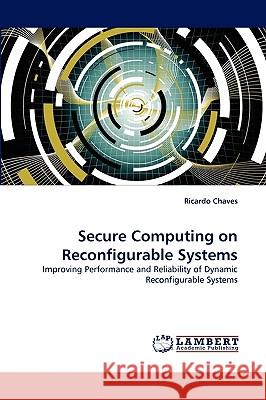Secure Computing on Reconfigurable Systems » książka
Secure Computing on Reconfigurable Systems
ISBN-13: 9783838362328 / Angielski / Miękka / 2010 / 212 str.
This work discusses a Secure Computing Module (SCM) for reconfigurable computing systems. Secure Computing (SC) provides a protected and reliable computational environment, where data security and protection against malicious attacks to the system is assured. SC is strongly based on encryption algorithms and on the attestation of the executed functions. The use of SC on reconfigurable devices has the advantage of being highly adaptable to the application and the user requirements, while providing high performances. Moreover, it is adaptable to new algorithms, protocols, and threats. In work, high performance cryptographic units for symmetric encryption and hash functions are presented in order to achieve a high performance SCM. A method to attest dynamically reconfigured hardware structures is also proposed, without penalizing the performance of the SCM. The presented attestation mechanism allows the configuration bitstreams to be stored in unsecured locations, such as on an external memory or the internet, without posing a security threat. Overall, this dissertation demonstrates the applicability and identifies the main advantages of implementing SC on reconfigurable systems.
This work discusses a Secure Computing Module (SCM) for reconfigurable computing systems. Secure Computing (SC) provides a protected and reliable computational environment, where data security and protection against malicious attacks to the system is assured. SC is strongly based on encryption algorithms and on the attestation of the executed functions. The use of SC on reconfigurable devices has the advantage of being highly adaptable to the application and the user requirements, while providing high performances. Moreover, it is adaptable to new algorithms, protocols, and threats. In work, high performance cryptographic units for symmetric encryption and hash functions are presented in order to achieve a high performance SCM. A method to attest dynamically reconfigured hardware structures is also proposed, without penalizing the performance of the SCM. The presented attestation mechanism allows the configuration bitstreams to be stored in unsecured locations, such as on an external memory or the internet, without posing a security threat. Overall, this dissertation demonstrates the applicability and identifies the main advantages of implementing SC on reconfigurable systems.











